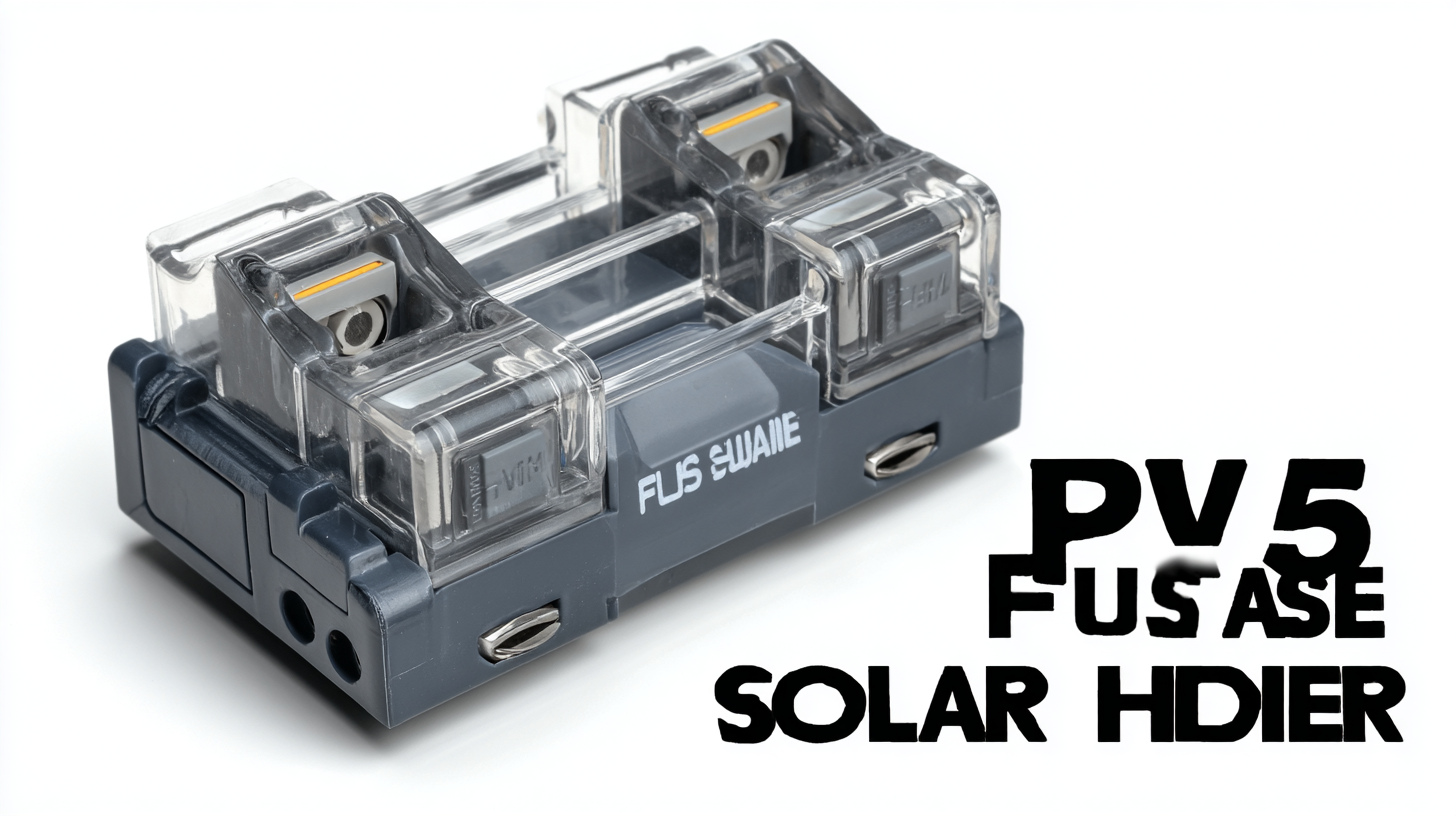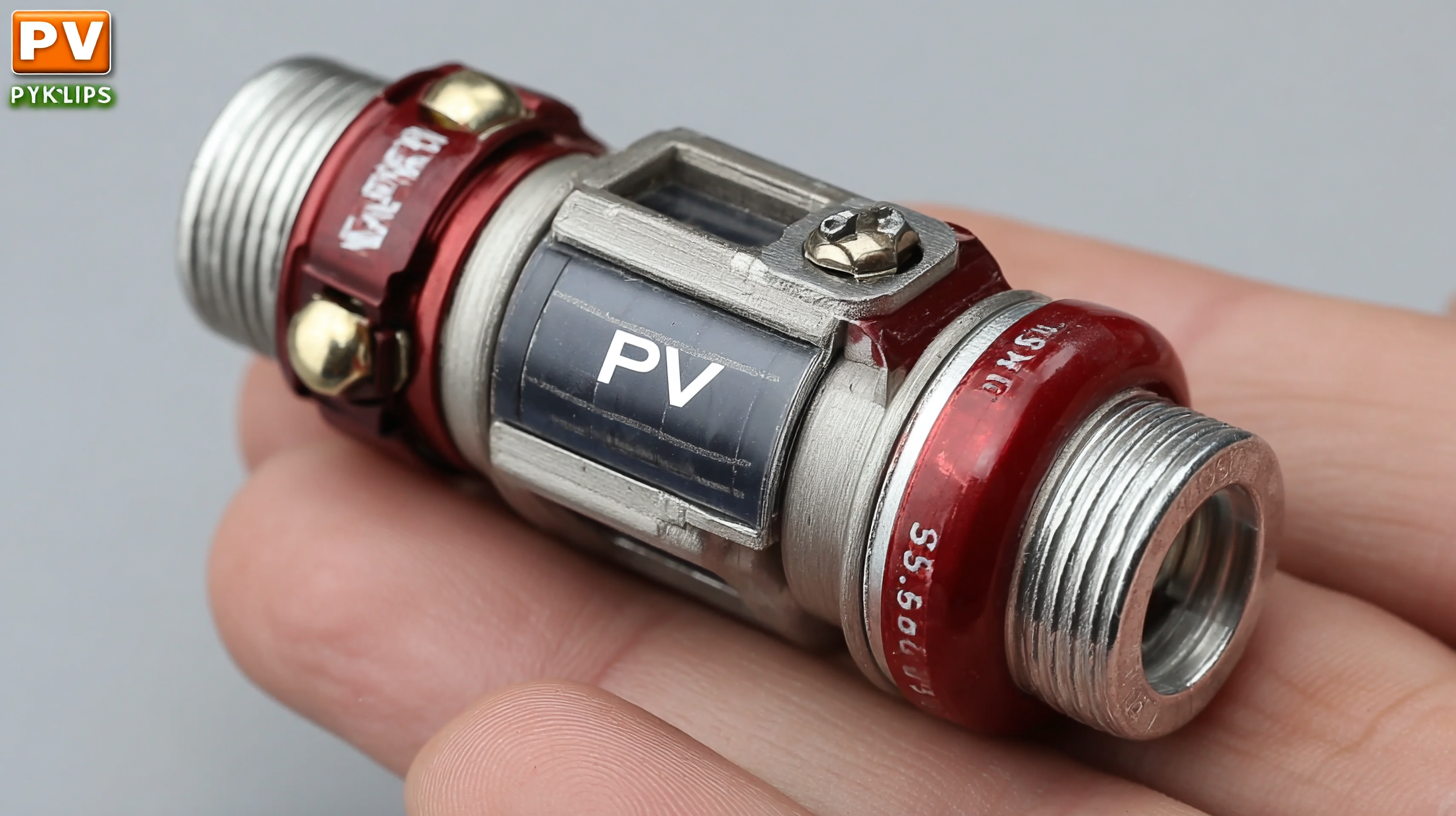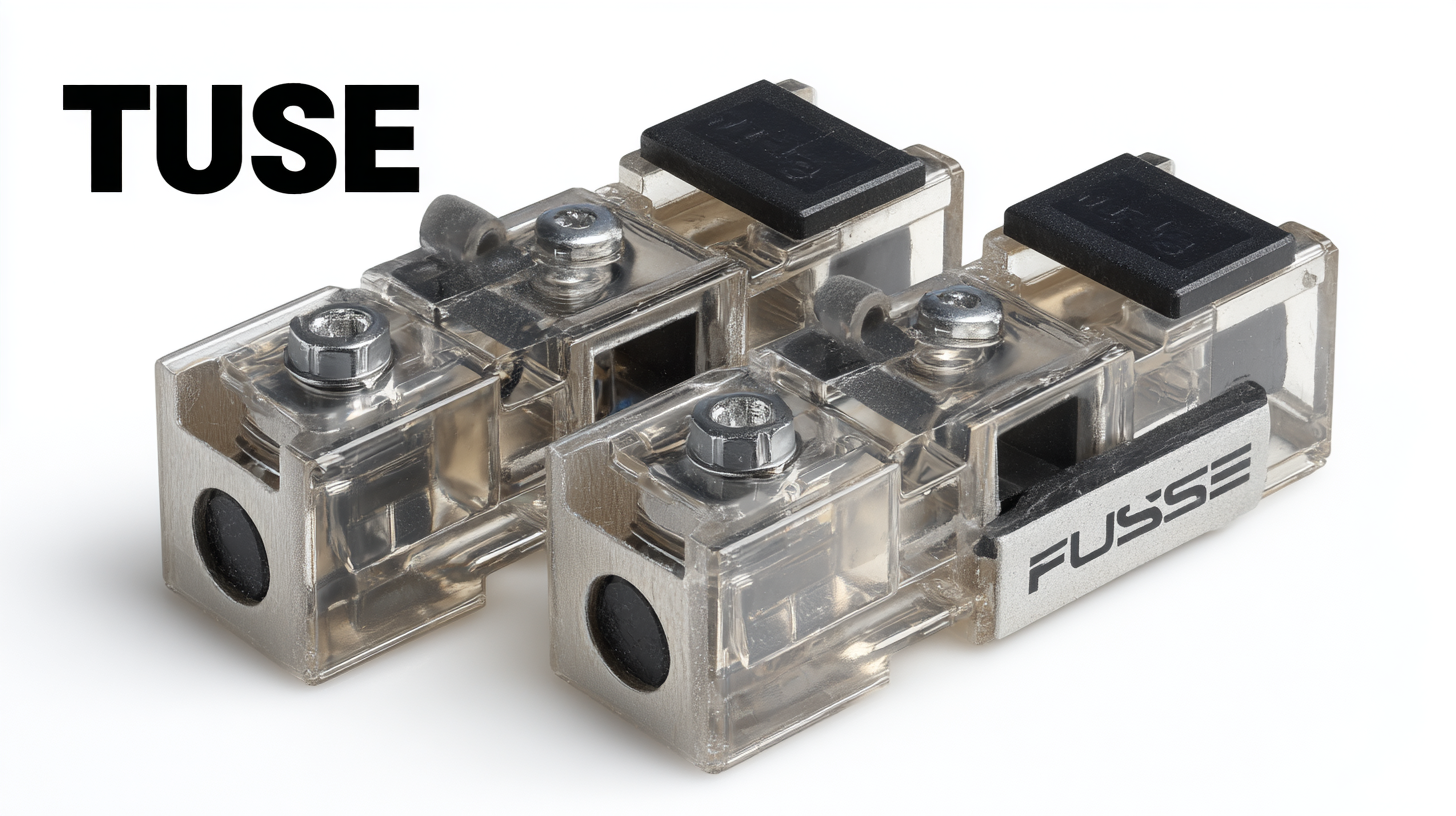
5 Essential Tips for Choosing the Best Pv Solar Fuse Holder
As the demand for renewable energy continues to surge, the relevance of high-quality components in photovoltaic systems becomes increasingly paramount. Among these components, the PV Solar Fuse Holder plays a critical role in ensuring the safety and efficiency of solar installations. According to the International Energy Agency (IEA), the global solar energy capacity is expected to surpass 2000 GW by 2025, making reliable fuse holders essential for safeguarding these systems against potential electrical faults. With the proliferation of solar installations, choosing the right PV Solar Fuse Holder from a reputable manufacturer, particularly from leading factories in China, can significantly influence the longevity and performance of solar energy systems. This blog outlines five essential tips to help you navigate the process of selecting the best PV Solar Fuse Holder for your solar project, ensuring you make an informed decision that aligns with industry standards.

Key Factors to Consider When Selecting a Pv Solar Fuse Holder
When selecting a PV solar fuse holder, several key factors must be considered to ensure optimal performance and safety. First, it's crucial to evaluate the voltage and current ratings of the fuse holder in relation to your solar system. A fuse holder must be rated higher than the maximum current and voltage of your application to prevent any potential failures. Additionally, ensure that the fuse holder is compatible with the specific fuses you plan to use, as different fuses have distinct configurations and specifications.
Another important aspect is the material and build quality of the fuse holder. Look for holders made from durable materials such as polyethylene or similar, which can withstand outdoor conditions. Additionally, features like waterproof seals and UV resistance can greatly enhance the longevity and reliability of the fuse holder in various climates. The ease of installation and maintenance is also vital; opt for designs that offer simple wire connections and accessibility for regular checks. By focusing on these factors, you can confidently select a PV solar fuse holder that will provide both safety and efficiency for your solar energy system.
5 Essential Tips for Choosing the Best Pv Solar Fuse Holder
Understanding Different Types of Fuse Holders for Solar Applications
When selecting a fuse holder for your solar application, it’s crucial to understand the different types available. Solar fuse holders come in various designs, including inline, panel-mount, and modular options. Each type serves a specific purpose and fits different installation requirements. Inline fuse holders, for instance, offer convenience for quick replacements, while panel-mount options provide a more permanent solution and are easier to access for maintenance.
One important tip is to consider the current and voltage ratings of the fuse holder to ensure compatibility with your solar system. Choosing a holder that matches or exceeds these ratings is essential for safety and performance. Additionally, take into account the environmental conditions where the fuse holder will be installed. Factors like moisture, dust, and temperature extremes can impact the longevity and effectiveness of the fuse holder, making it vital to select one that is rated for outdoor use if necessary.
Lastly, implementing a proper battery management system (BMS) is key to maximizing the performance of your solar setup. A BMS includes fuses, sensors, and controllers that work together to monitor and regulate battery health. Ensure the fuse holder you choose integrates seamlessly with your BMS to enhance safety and efficiency, safeguarding your investment in solar technology.
5 Essential Tips for Choosing the Best Pv Solar Fuse Holder
| Type of Fuse Holder | Voltage Rating | Current Rating | Material | Mounting Style | Additional Features |
|---|---|---|---|---|---|
| Blade Fuse Holder | 1000V | 30A | Plastic | Panel Mount | Weather-resistant cover |
| NSX Fuse Holder | 800V | 25A | Ceramic | DIN Rail Mount | Compact design |
| Mini Fuse Holder | 600V | 15A | Polymer | Inline Mount | LED indicator |
| Cartridge Fuse Holder | 1000V | 60A | Metal | Surface Mount | Locking mechanism |
| Solar Fuse Holder | 1500V | 20A | Plastic | Box Mount | UV resistant |
Safety Standards and Certifications for Reliable Fuse Holders
When selecting a photovoltaic (PV) solar fuse holder, safety standards and certifications are paramount to ensure reliable operation and protection of your solar system. According to a recent report from the National Renewable Energy Laboratory (NREL), the failure of electrical components in solar systems often results from insufficient adherence to safety standards. Hence, choosing fuse holders certified by recognized organizations, such as Underwriters Laboratories (UL) or Intertek’s ETL, is crucial. These certifications guarantee that the fuse holders have been rigorously tested for electrical insulation, thermal performance, and mechanical durability.
One essential tip is to look for fuse holders that meet the latest industry codes, such as the National Electrical Code (NEC). Compliance with these codes ensures that your fuse holder can handle your system’s voltage and current ratings. Another important consideration is the fuse holder's environmental ratings, such as IP68 for dust and water protection. This is particularly important in outdoor installations, where exposure to moisture and debris can compromise the longevity and functionality of your solar components.
Finally, always check for warranty coverage from the manufacturer. A solid warranty, often provided for five years or more, indicates the manufacturer’s confidence in their product’s quality and reliability. According to industry data, components with warranties not only enhance system performance but also contribute to the overall safety of solar installations.
The Importance of Material Quality in Pv Solar Fuse Holders
When selecting a photovoltaic (PV) solar fuse holder, one crucial factor to consider is the material quality. The reliability and effectiveness of a fuse holder largely depend on the materials used in its construction. High-quality materials not only enhance durability but also ensure better performance under varying environmental conditions. For instance, using UV-stabilized thermoplastics can prevent degradation from prolonged sunlight exposure, while metal contacts made from high-conductivity materials reduce resistance and heat buildup.
In addition to durability, material quality significantly impacts safety. A fuse holder made from flame-retardant materials can minimize the risk of fires caused by electrical arcing or overheating. Moreover, corrosion-resistant metals are essential for outdoor installations, where exposure to elements like moisture and salt can lead to deterioration over time. By prioritizing materials that meet industry standards for thermal and electrical performance, users can ensure their solar systems operate efficiently and safely for years to come.

Comparative Analysis of Cost and Performance for Fuse Holder Options
When selecting a PV solar fuse holder, understanding the cost-performance ratio is crucial. According to a report by the U.S. Department of Energy, the efficiency of photovoltaic systems can significantly impact energy production and operational costs. Low-quality fuse holders can lead to increased resistance, resulting in energy loss estimated at 2-3% over time. In contrast, premium fuse holders designed for solar applications, like those compliant with UL 98 standards, may have a higher initial price but offer long-term savings through enhanced durability and reduced maintenance needs.

Furthermore, a comparative analysis by Solar Power World indicates that investing in a reliable fuse holder can improve system performance. For instance, while standard fuse holders may cost around $15-$30, high-end options can range from $40-$70. This price difference is justified by superior materials and better handling of high currents, which ensures optimal system uptime. The long-term implications of these choices are underscored by performance data, showing that advanced fuse holders can lead to an average increase in energy output of 5-10% annually, making them a wise investment for serious solar energy developers.
